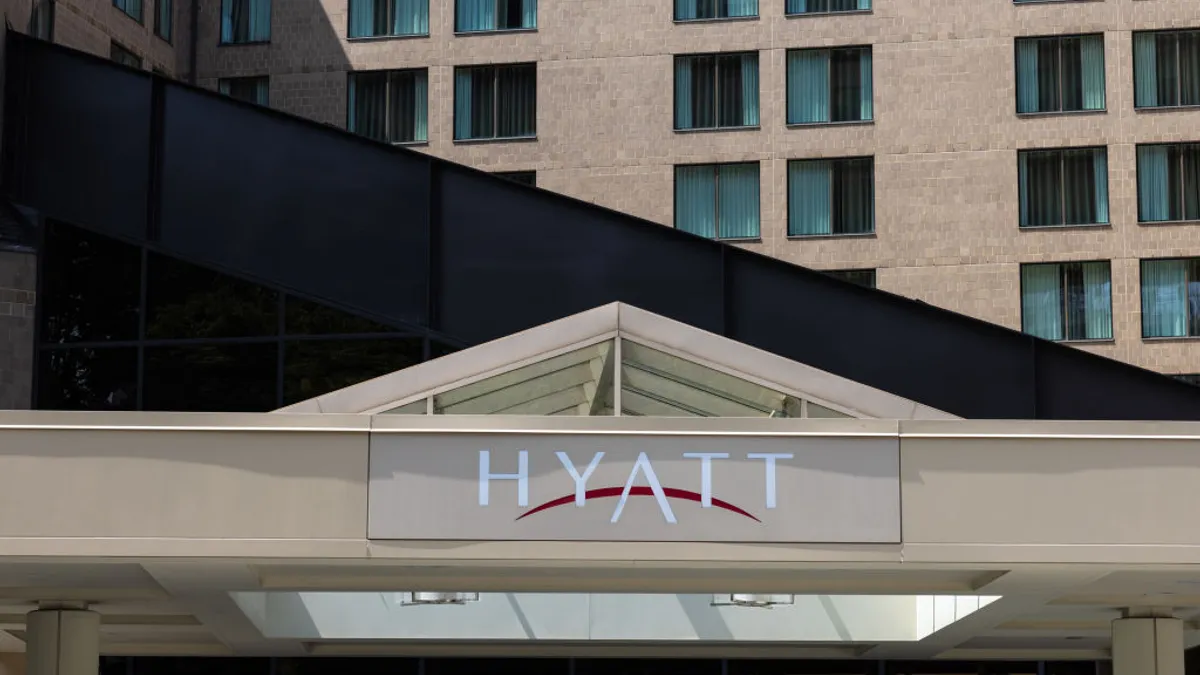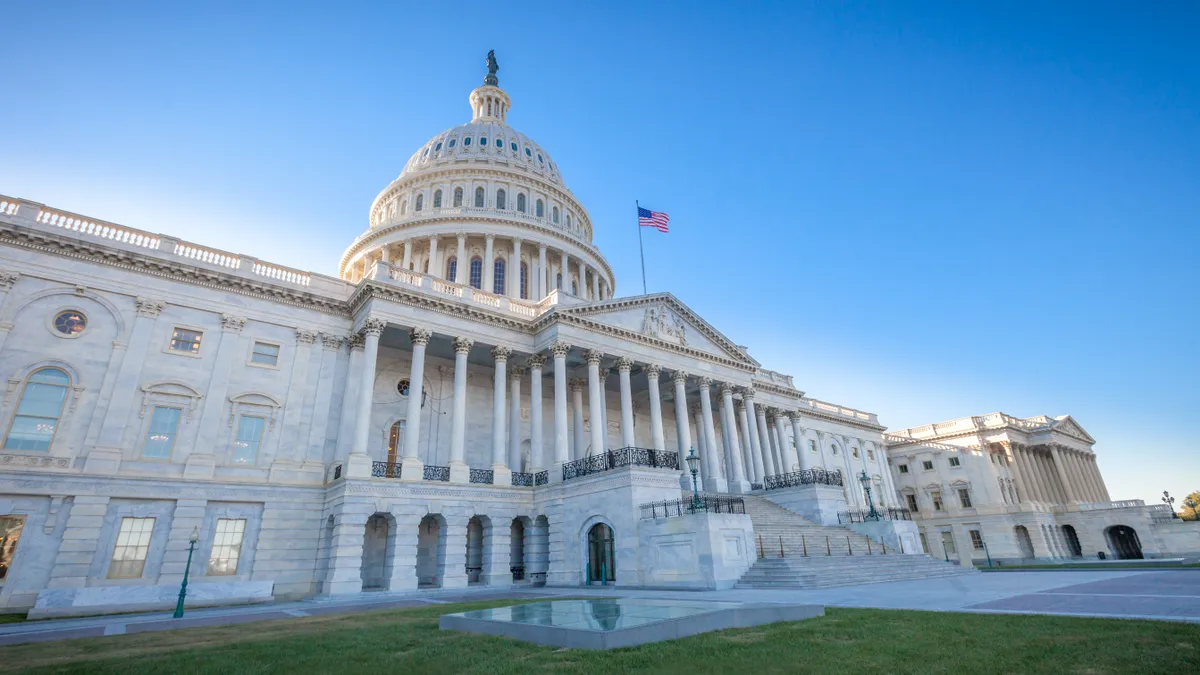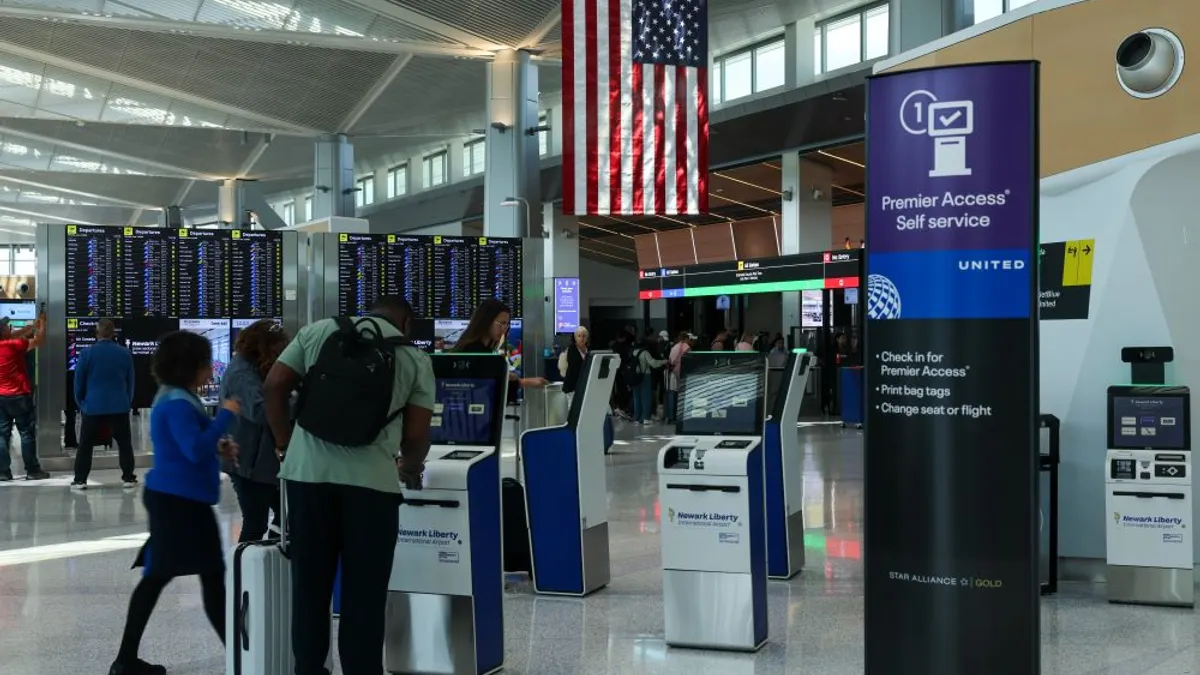As the Federal Trade Commission’s Rule on Unfair or Deceptive Fees goes into effect today, some travel industry professionals are breathing a sigh of relief.
The rule, which was finalized in December, clarifies that it is “an unfair and deceptive practice” for businesses to “offer, display, or advertise any price of live-event tickets or short-term lodging without clearly, conspicuously and prominently disclosing the total price.”
That means any of the numerous added costs hotels tack on to room rates — say, resort or destination fees — will need to be displayed up front.
While the FTC’s rule marks a victory for the travel industry players that have been advocating for pricing regulation, including the American Hotel & Lodging Association, the regulation is not the only one in the works. Hotel Dive spoke to industry experts about how the rule came to be — and how it could impact legislation to come.
A nationwide standard
The FTC’s rule does not prohibit any fees or pricing strategies; rather, it “simply requires that businesses that advertise their pricing tell consumers the whole truth up-front,” the FTC shared in December.
The rule requires that businesses “clearly and conspicuously" disclose the true total price inclusive of all mandatory fees and display it more prominently than other pricing information.
“The FTC sets a nationwide standard,” said Laura Chadwick, president and CEO of the Travel Technology Association.
Now consumers have reassurance, backed by Federal Trade Commission enforcement, that again they can compare apples to apples.

Laura Chadwick
president and CEO of the Travel Technology Association
Having a federal-level regulation is also important to tackling pricing issues, Chadwick said, because while some states — including California — have their own junk fees rules, “very often the consumers are looking cross-border for hotels.”
Chadwick and the association she leads provided feedback to the FTC as it refined its rule. The result, she said, is a regulation that reflects the “complicated information flow” at play in hotel booking. That rule, she said, stands to benefit not only travelers, but also the technologies that undergird much of the hotel booking process.
“There are billions of price points traveling through hotels, direct channels and indirect channels,” she said. Notably, the FTC’s rule governs business-to-business interactions as well, “so if a supplier does not provide the correct information to an intermediary, then that intermediary passed on that inaccurate price to consumers, [then] the transaction between the supplier and the intermediary would be subject to the FTCs enforcement actions as well,” she said.
This means hotels that set rates “are ultimately responsible for making sure that the accurate and full complete information is passed down through the chain.”
Chadwick said the rule will benefit consumers no matter where they’re shopping for travel, as the way prices are displayed will be standardized. “Now consumers have reassurance, backed by Federal Trade Commission enforcement, that again they can compare apples to apples,” she said.
With the FTC’s backing, firms deploying “bait-and-switch pricing tactics” will be subject to civil penalties, then-FTC Chair Lina Khan said in a December statement.
‘A game of whack-a-mole’
In December, the FTC said its junk fees rule will save American consumers up to 53 million hours per year spent searching for the total price of lodging and events — equivalent to more than $11 billion over the next decade.
But it’s not just travelers who welcome the change.
“Every travel manager on the planet that has a decent hotel program is really excited about [regulating fees],” Steve Reynolds, chief strategy officer at Emburse, a business-to-business travel and expensive management firm, told Hotel Dive.
According to Reynolds, hidden fees hamper corporate travel buyers’ ability to accurately assess prices, and for major buyers, those fees add up. “They’re doing the best they can to maximize the value of their hotel program, to save their company money and report on the savings achieved, but these resort fees and hidden taxes kill their value.”
Reynolds also noted that some hotel companies claimed to have eliminated fees when really they’d just renamed them. “It's a game of whack-a-mole,” he said. “And then [hotels will] change the name of the fee, or they’ll call it a tax when it's not really a tax.”
Some hotel players, including Marriott International, have already updated how fees are displayed in response to buyers’ concerns about hidden costs.
“Some of the major chains have listened to the corporate buyers, and they've really gotten on the hotels that do [hidden fees] and made them stop,” Reynolds said. But in order to compete with the big chains, smaller, independent hotels “have gotten extremely dependent upon these fees.”
“Making sure that, at the point of sale, we're all comparing rates the same way, is a big benefit for corporations,” he said. “I don't care what you call [the fee]. I don't care how you calculate it. It needs to be communicated.”
One leg of a broader strategy
Chadwick said the FTC’s rule will act as a springboard for future junk fees legislation.
“The FTC’s is a great rule,” she said, “but the FTC lacks the ability to preempt state laws,” adding that the federal body has essentially “set a floor.”
Now, future legislation will consider that floor. One such piece of legislation being considered is the Hotel Fees Transparency Act of 2025, which will establish a uniform definition of a “total service price” nationwide.
The House of Representatives passed the act last month, sending it to the Senate for consideration. The Travel Technology Association and the American Hotel & Lodging Association have applauded the rule. “A transparent process means a better experience and greater satisfaction for all guests,” wrote AHLA in a statement.
“Congress is very much focused on renewing President Trump's tax cuts from 2017,” Chadwick said. “We are hopeful once that has cleared that there will be an opportunity for this bill to be considered by the full Senate.”
A similar piece of legislation, the No Hidden FEES Act, was passed in the House in 2024. According to Kevin Carey, AHLA’s then-interim president, the law would establish “an even competitive playing field.”
“We’re at a place where we want everybody to be playing with the same set of rules,” Bryan Mohler, a partner at law firm Pryor Cashman’s Real Estate, Hotel + Hospitality and Litigation Groups, previously told Hotel Dive. “I think if I’m Marriott, I’m happy about that [more broad regulation], so you’re not just targeting me anymore.”


















